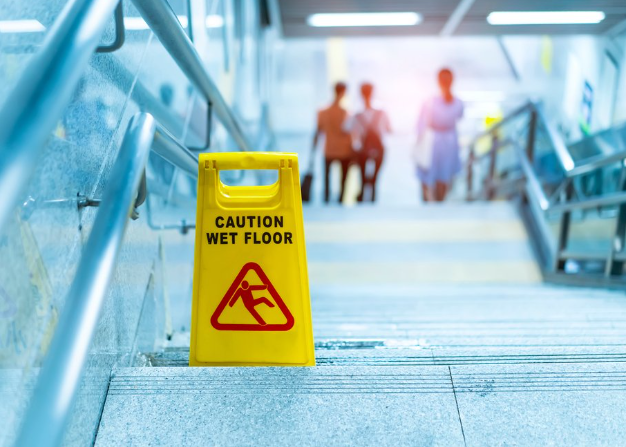
What can you expect in life after bankruptcy? It’s crucial to carefully consider all the potential consequences before making the decision to file for bankruptcy. What can you expect if your decision is to go ahead? This article will discuss everything you need to recover after a bankruptcy discharge.
What Happens If You File Bankruptcy?
Chapter 7, also known as “liquidation bankruptcy,” is the most common type of bankruptcy for individuals. In this process, a trustee uses liquidated assets to repay as much debt as possible, with the remaining balance being discharged.
Chapter 13, also referred to as a “wage earner plan,” allows individuals to prevent foreclosure on their homes and retain other assets. To qualify, one must adhere to a court-approved repayment plan spanning three to five years. Failure to comply may result in a forced transition to Chapter 7, where assets are liquidated.
Effects of Bankruptcy
Impact on Credit History and Duration
Both Chapter 7 and Chapter 13 bankruptcies have significant effects on credit reports. Chapter 7 bankruptcy can remain on an individual’s credit report for up to 10 years, while Chapter 13 remains for seven years. This prolonged duration makes obtaining future loans challenging and may limit access to affordable financing options.
Rebuilding Credit
After bankruptcy, individuals may initially only qualify for loans from finance companies with high-interest rates. While it is possible to improve credit scores within a few months, major purchases such as homes or cars may become difficult to finance due to the bankruptcy record.
Consultation
When considering bankruptcy as a solution to overwhelming debt, it is essential to consult with an attorney. They can evaluate your specific situation and help determine the most suitable type of bankruptcy, taking into account factors such as asset protection, debt repayment, and long-term financial goals.
How to Recover After Filing for Bankruptcy
You can take a few simple steps to help you regain control over your finances.
Keep a Job and a Home
It is vital that you find a job as soon as you can. If you do not have a place to live yet, this is the next most important thing. Creditors will be more likely to trust you if your employment and residence histories are stable.
Credit references are increasingly being checked by landlords to screen out unreliable tenants. You may need to share an apartment with a relative or friend until your credit rating improves.
As a way to gauge personal responsibility, employers may ask for credit scores and histories from their applicants. Unlucky circumstances can create a cycle of debt that prevents you from finding a job paying enough to pay your bills. Find a job to help you put the bankruptcy behind.
Pay Your Bills on Time
You must also keep up with all your bills and payments to ensure that your credit history after bankruptcy remains clean. In this respect, there is no room for even a tiny amount of backsliding. You must therefore be very careful to ensure that your expenditures do not exceed what you can afford.
Maintain a Bank Balance
It is important to open and maintain a checking account and/or a savings account. If you have a history with charged-off accounts, it could be difficult to open a checking account.
Many banks have Second-Chance Programs to help people in these situations. Maintaining a positive balance on all your accounts will demonstrate to employers and creditors that they can rely on you for cash flow.
Rebuild Your Credit Today
Rebuilding what was lost during bankruptcy is crucial. To rebuild your credit, you may need to consider using a credit card. This will demonstrate to lenders that you can effectively manage your finances and are determined to restore your credit history.
If you don’t qualify for a standard credit card, you should consider obtaining a secured credit card, known as a protected credit card. With this type of card, you’ll need to deposit a specific amount of money with the bank. After using it responsibly for a certain period, you may have the opportunity to upgrade to a regular credit card.
If you find yourself in debt, it’s important to immediately stop using your credit card. Create a repayment schedule and use cash or debit cards to pay off your credit card debt until you’re able to do so. Keep in mind that the interest rates on any other cards you might be eligible for are likely to be higher than average credit cards.
Get Help with Car Loans and Mortgages
When you want to make a larger purchase using debt, you might need to find someone to co-sign the loan. Without a co-signer, it could be challenging to obtain financing. However, having a co-signer with a good credit rating can help you secure the loan with favorable terms.
If you don’t qualify for a loan, you might have to wait until you have enough cash to make the purchase. Another option is to consider a personal loan from family or friends.
Having a bad credit history can make it difficult to obtain insurance coverage. Insurance companies may view you as a high-risk individual due to your poor credit rating. As a result, they may offer you car insurance but at a higher price.
Do You Need an Attorney to File for Bankruptcy?
While it is not legally required to hire an attorney to file for bankruptcy, it is highly recommended by the U.S. courts due to the complex nature of the process and its long-term consequences. Bankruptcy involves intricate laws, paperwork, and court proceedings, which can be challenging to navigate without legal expertise.
An experienced bankruptcy attorney has the knowledge and understanding of bankruptcy laws to guide you through the process, provide personalized advice based on your financial situation, protect your rights from creditors, and ensure accurate completion of the required paperwork. Their representation can significantly increase the likelihood of a successful bankruptcy case and help you plan for a more stable financial future.
Can Bankruptcy Be Removed From Your Credit Report?
If it’s not there, then you will have to wait either seven or ten years depending on the type of bankruptcy. At that point, your credit report should automatically be cleared. If you don’t wait seven to ten years depending on the type of bankruptcy you had, it will automatically disappear from your credit report. Anyone or any company who claims they can remove it before then is likely scamming.
Bottom Line: Life After Bankruptcy
Bankruptcy is not the end. Many successful individuals, such as Mark Twain, Walt Disney, Elton John, and Henry Ford, have experienced bankruptcy but went on to achieve prosperity.
The crucial factor in getting back on track is to use your income and credit wisely after bankruptcy. By demonstrating to employers and lenders that you have regained control of your life, you can overcome this obstacle and rebuild your financial standing.
If you’re in need of expert guidance and support to navigate the complexities of bankruptcy in Los Angeles, California, Tenina Law is here to assist you every step of the way. With their extensive knowledge and experience in bankruptcy law, their dedicated team is committed to helping you regain financial stability and a fresh start. Don’t let bankruptcy define your future – trust Tenina Law to provide you with personalized solutions tailored to your unique circumstances.
Contact them today and take the first empowering step towards a brighter financial future.







[…] may be utilized by the court to determine your eligibility for including student loans in your bankruptcy discharge, but these two are the most commonly employed […]